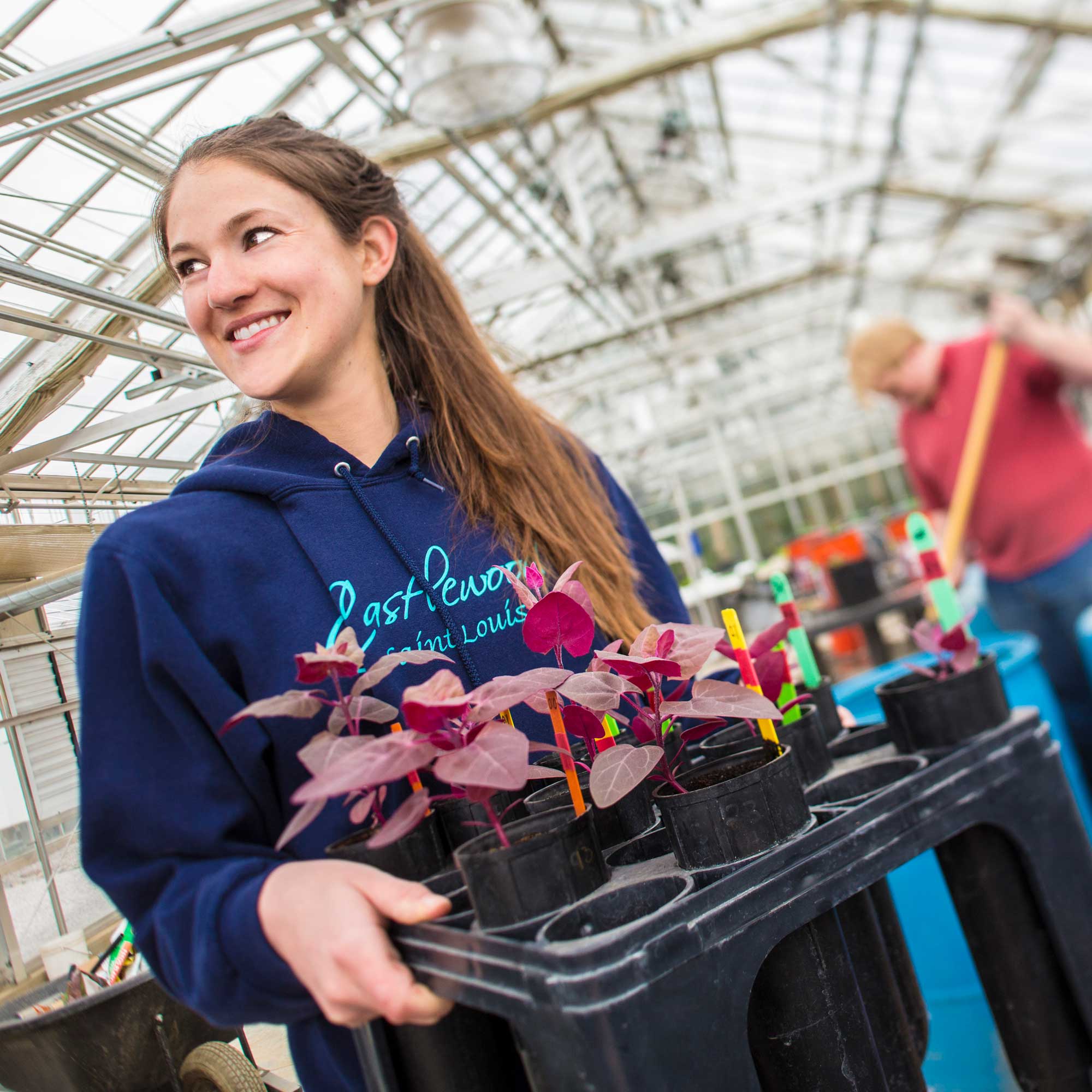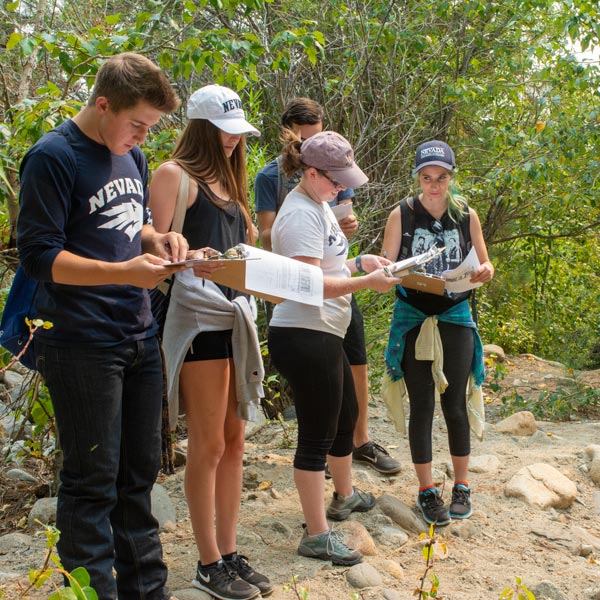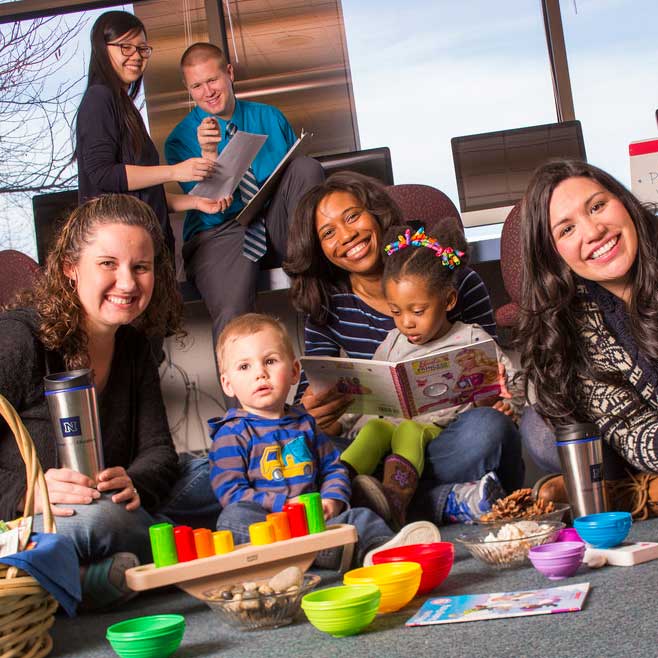In this edition
- Extension and law enforcement team up to change lives of at-risk youth
- University provides advanced education needed for wildland firefighters
- NSF CAREER Award recipient Andrew Nuss develops new approaches to protect the food supply
- College staff and students conduct weeklong biotechnology lab at high school
- Agriculture producers to gather at the Nevada Small Agriculture Conference
- Extension seeking to boost Master Gardener presence in North Lake Tahoe area
About our College
A founding college of the University, we have a long tradition of excellence in teaching, research and engagement programs that benefit the health and economic vitality of Nevada. We offer programs in:
- agriculture, horticulture, rangeland and veterinary sciences
- biochemistry and molecular biology
- children, youth and families
- community and economic development
- health and nutrition
- natural resources and environmental science
Extension and law enforcement team up to change lives of at-risk youth
Hydroponics and mentorship combine to bring together diverse groups and change the school culture
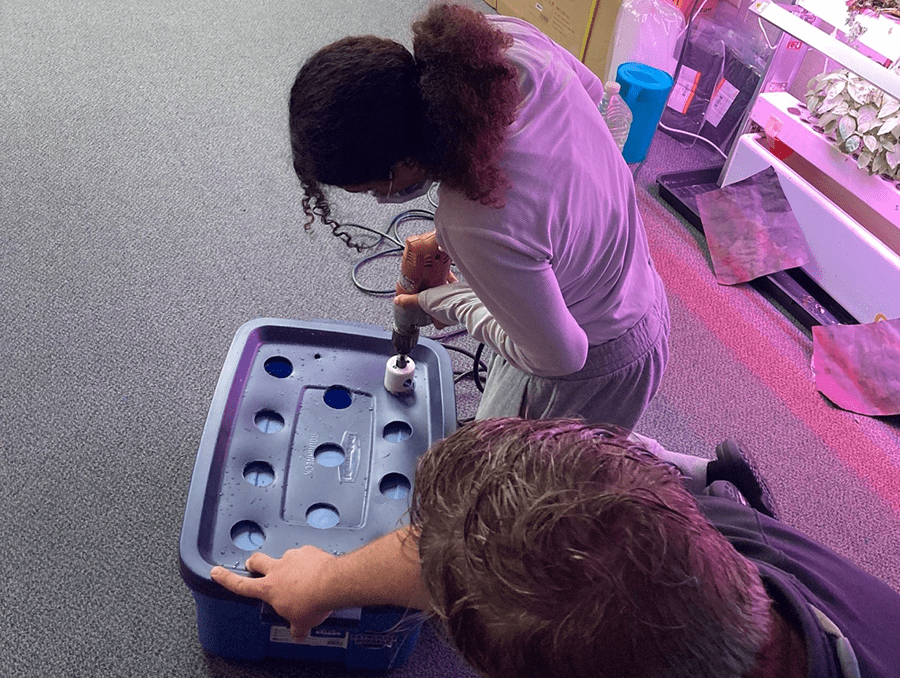
Extension’s Taylor Quiram assists a student using the hole saw as they create their own hydroponics unit. Photo by Arnold Parker.
A unique program called “Young Men Mentorship through Hip Hop, Literacy & Horticulture” is changing lives and creating a culture of change at Western and Legacy High Schools in Clark County. The 12-week program, created in partnership between Extension and law enforcement, is aimed at:
- Gang intervention and curtailing violence
- Opening students up to new opportunities
- Equipping young men with life skills
The program was created by Extension’s Tricia Braxton Perry and Las Vegas Metropolitan Police Officer Arnold Parker, with funding from Anthem. Each week, the program’s focus alternates between mentorship from law enforcement and horticulture education from Extension. Participation in the program is having a positive impact, and Perry is working to expand it into more Clark County schools.
Elevating students, preventing violence
“We’re trying to prevent violence and elevate students. When we bring them all into the classroom, they all have a lot of similarities because we are at high-risk schools. The kids aren’t high risk, it’s the environment they’re in.” - Officer Arnold Parker
University provides advanced education needed for wildland firefighters
Program participants gain knowledge and skills to help manage fires and rangeland, and meet federal requirements
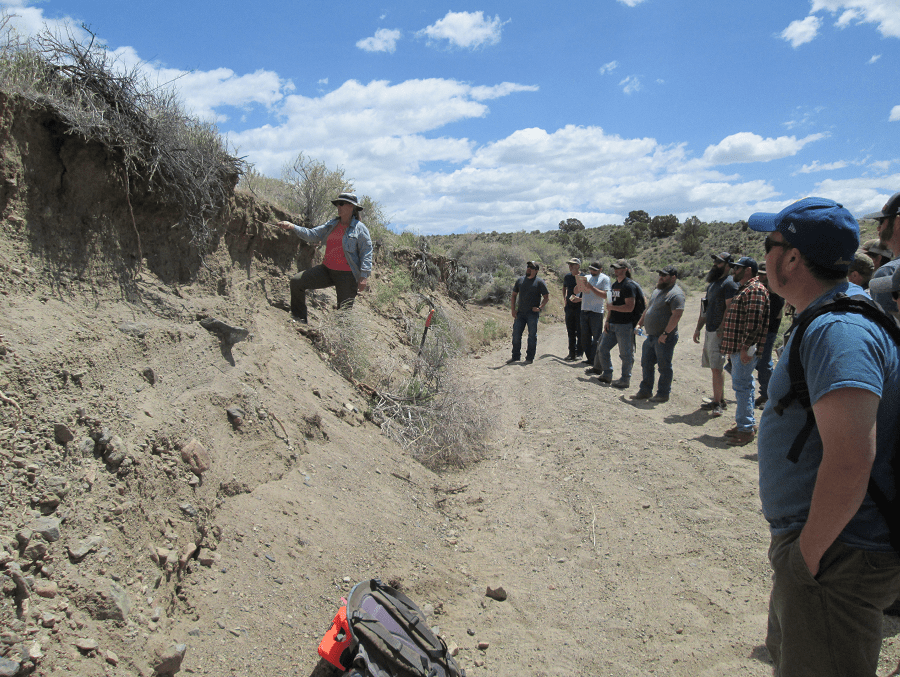
Professor Tamzen Stringham teaches students in the Rangeland and Fire Ecology Program how to determine the texture and characteristics of soil within each soil horizon, or layer. Photo by William Richardson.
Faced with a shortage of wildland fire personnel who meet federal education and training requirements, BLM Nevada came to the College for help.
About five years later, more than 100 students have completed the College’s two-year “Rangeland and Fire Ecology Education Program,” and now meet the requirements for “Series 401, Natural Resources Management and Biological Sciences” positions. New this year is an option for students to also become qualified for “454 Series, Rangeland Management Specialist” positions. More importantly, the program fully arms graduates with the knowledge and skills needed to battle wildfires and maintain rangelands and natural resources.
Tamzen Stringham, a professor with the College and its Experiment Station unit, worked with partners to put together the program. It is administered by the College’s Extended Studies unit and offers in-state tuition rates to all students.
“We know there aren’t a lot of programs like this in the West, or in the country, for that matter,” Stringham said. “So, we want to make it available and affordable not only for our Nevada professionals, but for those in our neighboring states and other parts of the country. As we’ve all learned, wildfires have no boundaries. We need to do everything we can to help manage them and our natural resources nationwide.”
Transforming fire management
“This program started as a big ask of the College and has transformed our employees who have attended it. After the first class, the enthusiasm and feedback were amazing, and I knew we had a great program. This has potential to change fire management visions and direction.” – Former State Fire Management Officer Paul Petersen
NSF CAREER Award recipient Andrew Nuss develops new approaches to protect the food supply
$1.17 million-supported project builds upon Nuss’s previous work on insulin signaling in Lygus hesperus, the western tarnished plant bug
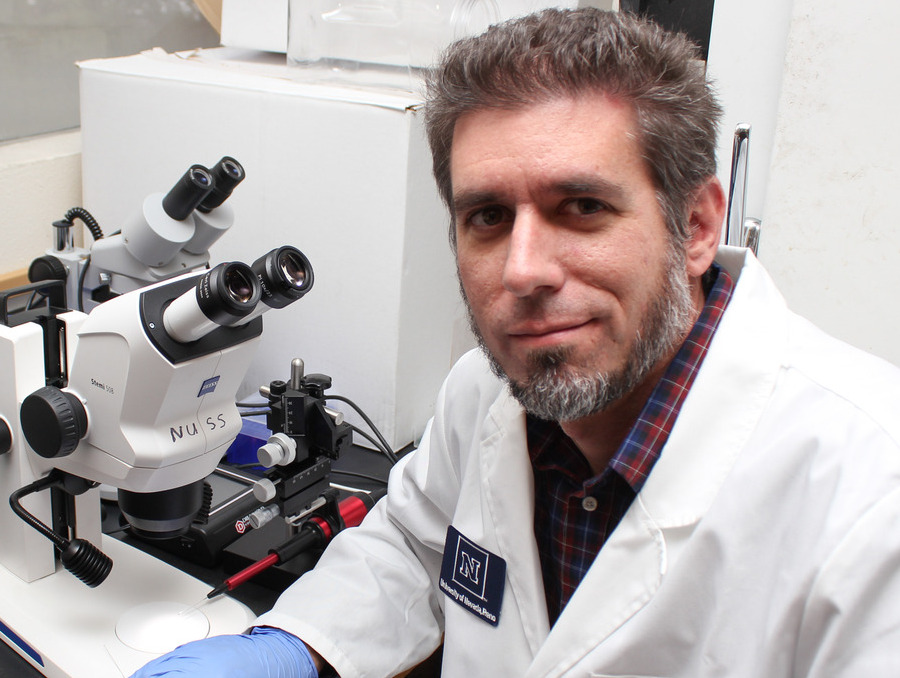
Assistant Professor Andrew Nuss was recently honored with a prestigious National Science Foundation CAREER Award.
Assistant Professor Andrew Nuss was recently honored with a CAREER Award. The award is the National Science Foundation's most prestigious recognition for early-career faculty who have the potential to serve as role models in research and education.
Nuss’s $1.17 million CAREER Award project aims to develop a better understanding of insect physiology and how insects use hormones and neurotransmitters. The project will focus on insulin signaling in Lygus hesperus, the western tarnished plant bug, commonly called Lygus bugs. The insect is a pest of over 100 plant species, including crops such as alfalfa, cotton and strawberries. A better understanding of Lygus bug physiology may lead to improved:
- Protection of our food supply
- Understanding of insect species
The project includes:
- Creating an insect physiology course
- Providing research opportunities and mentorship for undergraduates, including low-income, first-generation students
- Engaging with farmers and the public on insect physiology, research results, and their needs and questions
Fueling scientific discoveries
“I hope to keep expanding our knowledge of insect physiology, neuropeptides and beyond. This award will allow us to explore one aspect of physiology in this insect and fuel discoveries for explorations into new areas for years to come. I’m excited for what we discover next and where it leads.” - Assistant Professor Andrew Nuss
College staff and students conduct weeklong biotechnology lab at high school
Hug High School students inspired by seeing diverse group of people pursuing science careers
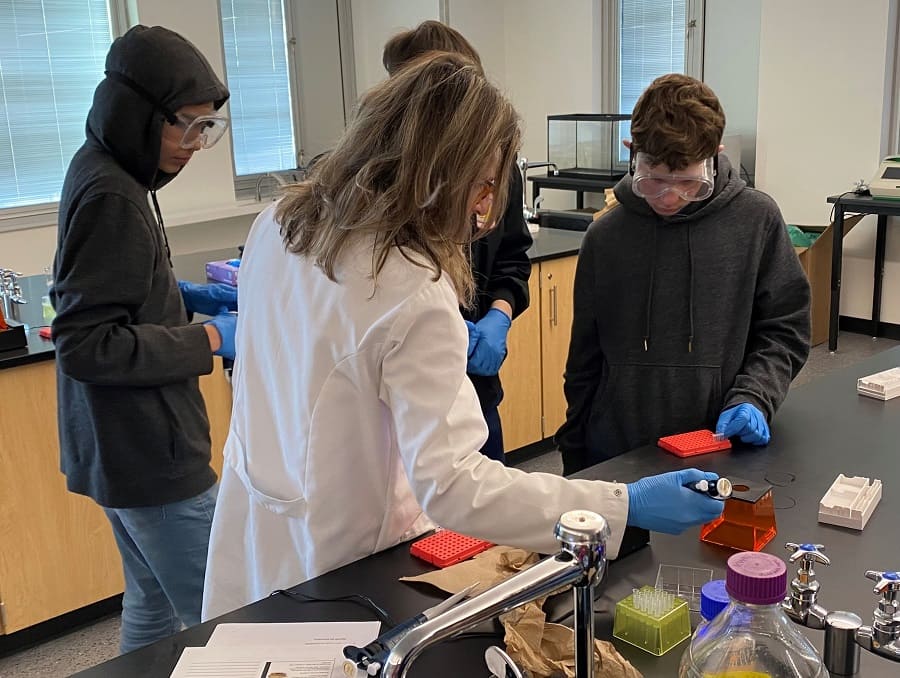
Patricia Santos, an assistant professor with the College, works with Hug High School students on lab experiments during a recent pilot lab project. Photo by Salvador Herrera.
This could be the beginning of a great partnership: high school teachers and the College, working together to interest young people in science careers. Patricia Santos, an assistant professor with the College’s Department of Biochemistry & Molecular Biology, and Ana Herrera, a biology instructor with Hug High School in Reno, led a weeklong lab in April for 40 students in Herrera’s two Advanced Placement biology classes.
The emphasis of the lab was an experiment based on CRISPR, a research technique to edit genomes. The experiment was guided by students from the Department and based on a University study in which potato genomes were edited to see if they could stay fresh longer. It is an example of how biotechnology can help farmers.
The collaborative outreach effort may lead to more teaching partnerships in the future. Santos is applying this summer for a National Science Foundation grant to develop dual-credit biotechnology classes for high school students.
Introducing students to science
“One of my students put it really well. They were very appreciative of us bringing professionals in, so they can see themselves in those roles. For me as a teacher, that is my biggest goal: to have students exposed to different fields of science they may have never seen before.” - Hug High School Instructor Ana Herrera
Agriculture producers to gather at the Nevada Small Agriculture Conference
Farm Bureau and Extension team up to provide latest information to producers Aug. 25-26 in Las Vegas
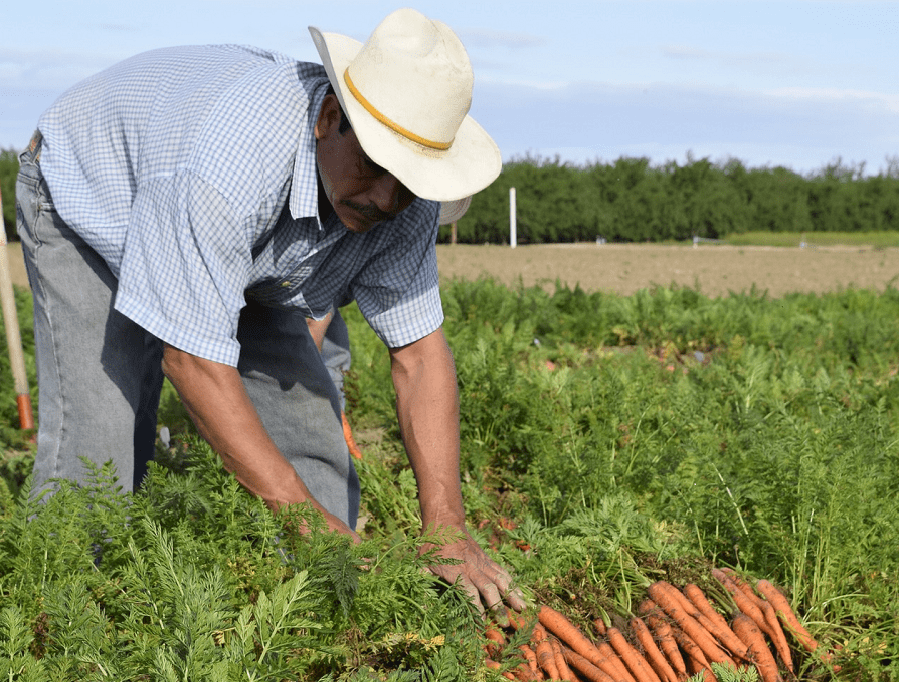
The Nevada Small Agriculture Conference will be held Aug. 25-26, at the Santa Fe Station in Las Vegas.
Those with smaller agricultural operations in the state, or considering getting into the business, can get a wealth of information on the newest techniques and resources at the Nevada Small Agriculture Conference, Aug. 25-26, at the Santa Fe Station in Las Vegas.
The event is being coordinated by the Nevada Farm Bureau and Extension, with assistance from the USDA’s Western Sustainable Agriculture Research and Education Program (WSARE).
Aug. 25
- Breakout sessions throughout the day
- A lunch session on marketing tools for the busy farmer
- An evening social and trade show
- Dinner with a keynote speaker
Aug. 26
- Breakout sessions throughout the day
- Lunch session featuring success stories using WSARE funds
- Panel discussion with agriculture leaders in the state
The cost to register online by Aug. 18 is $80 (or $55 for Nevada Farm Bureau members). Late registration at the event will be limited, and prices will go up.
Advancing Nevada agriculture
“Small-acreage producers will be able to network with one another, as well as get the latest information on research, production and resources from experts, such as those from Nevada Farm Bureau, our College’s Extension and Experiment Station units, federal and state agencies, and more.” - Senior Marketing Specialist Claudene Wharton
Extension seeking to boost Master Gardener presence in North Lake Tahoe area
Looking for those interested in enrolling in the Home Horticulture Certificate Program that begins Aug. 2
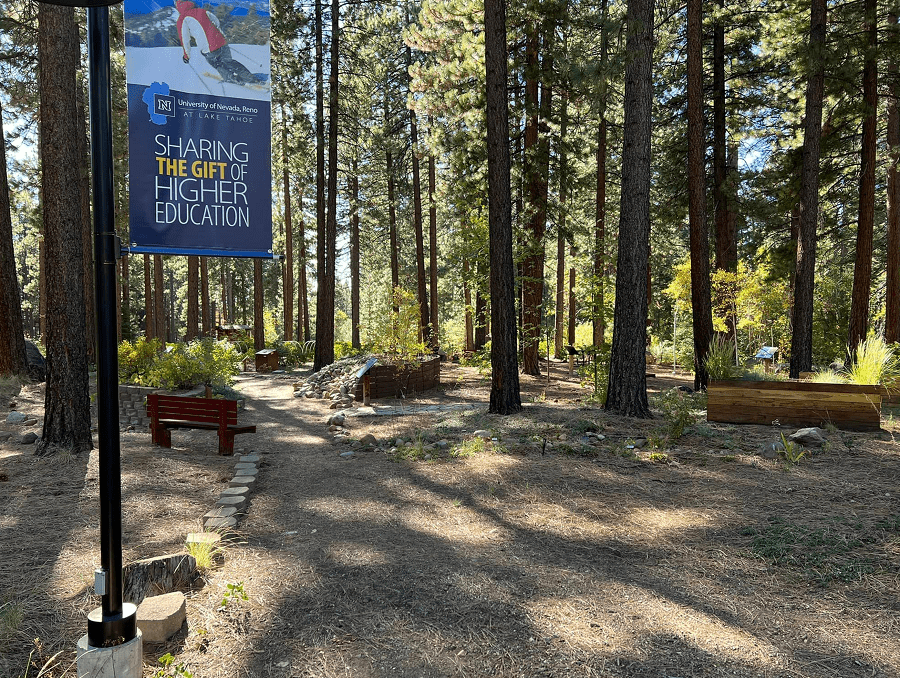
Extension is seeking those interested in being stewards of the North Lake Tahoe Demonstration Garden at the University’s Lake Tahoe campus.
With the newly acquired University of Nevada, Reno at Lake Tahoe campus, the North Lake Tahoe Demonstration Garden is once again under Extension’s stewardship. Extension is seeking to rev up its Master Gardener volunteer presence in the area to not only be stewards of the demonstration garden, but also get involved in other educational gardening activities in the community.
The timing is right to recruit new volunteers, with Extension offering its online Home Horticulture Certificate Program Aug. 2 - Sept. 28. The program is ideal for anyone who wants to learn more about gardening or become a Master Gardener.
Making a difference in the community
“We once had quite a presence in the area, and now is a perfect time to get back into this community. A great way to start is to get an army of involved Master Gardeners wanting to make a difference at the demonstration garden at the beautiful Tahoe campus.” - Master Gardener Coordinator Katelyn Brinkerhoff
Innovating for Nevada
Our programs work together to make an impact
Our teaching, research and engagement programs are intertwined and complement one another. Faculty who teach on campus also conduct research as part of our Experiment Station, allowing students to learn about and participate in research. Extension faculty engaging with communities identify research needs, as well as join Experiment Station faculty to conduct research. Faculty on campus help to develop Extension programs in communities.
